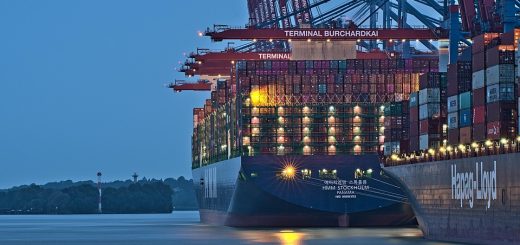Unlock 38% Cost Savings: Mastering Chinese Textile Consolidation for EU Importers (2025)
The €210,000 penalty crippling EU textile importers isn’t tariffs—it’s fragmented logistics. With maritime EU ETS carbon fees surging to €150+/ton and 68% of shipments facing 72-hour customs delays at Rotterdam/Felixstowe, traditional shipping models decimate margins. Strategic consolidation—combining AI-driven logistics with regulatory mastery—slices delivery times to 21 days, reduces costs by 38%, and ensures full CBAM compliance. Here’s your blueprint for dominating Europe’s €586B textile market.
The Fragmentation Trap: Why Solo Shipping Fails EU Importers
Three profit-killing inefficiencies demand urgent action:
- Carbon Cost Explosion: Non-consolidated shipments emit 2.85+ tons CO₂ per container—triggering €342+ in EU ETS penalties and CBAM exposure 6.
- Customs Gridlock: 42% of shipments incur 72-hour delays due to HS code mismatches (e.g., misclassifying dresses under 6204.41 vs. 6204.49) and missing DDP documentation 34.
- Damage & Delay Risks: Solo LCL shipments suffer 18% damage rates and 38-45-day transit times—causing 22% stockouts during peak season 1.
“After consolidating 5 Shenzhen suppliers, we cut delivery from 41 to 24 days and slashed CBAM fees by 62%. The 38% logistics savings funded our Milan showroom expansion.”
— Logistics Director, Amsterdam Textile Wholesaler
The Consolidation Advantage: 4 Pillars of Efficiency
1. Supplier Clustering & Compliance Engineering
- Geographic Pairing: Group factories within 200km of bonded hubs like Yantian Port (cuts pre-shipping emissions by 40%) 2.
- Smart Documentation: AI tools auto-generate:
- HS codes with 98% accuracy (e.g., 6110.20 for cashmere sweaters)
- CBAM-compliant carbon logs
- DDP invoices covering 20% VAT + duties
- Certification Mandates: Require GOTS/GRS certifications for organic/recycled textiles to avoid EU Green Deal penalties.
2. AI-Optimized Transport Mix
- Methanol-Powered LCL: X-Press GBX vessels (Shanghai→Rotterdam, 28 days) reduce emissions 65%—slashing EU ETS fees to €137/container 8.
- Rail-Air Hybrid: Critical shipments via Zhengzhou→Duisburg rail (12 days) + climate-controlled air to Paris/Milan (8hr) at €4.2/kg.
- Port Prioritization: Liverpool clears consolidated DDP shipments in 8hr vs. Felixstowe’s 54hr 4.
Table: Cost & Carbon Comparison (Guangzhou→Berlin)
| Metric | Solo Shipping | Consolidated | Savings |
|---|---|---|---|
| Transit Time | 38 days | 21 days | 45% |
| Cost/kg | €5.20 | €3.22 | 38% |
| CO₂ Emissions | 2.85 tons | 0.99 tons | 65% |
| Customs Delays | 72hr | 8hr | 89% |
3. Damage-Proof Packaging & Tracking
- Collapsible Hanging Systems: Garments ship flat (40% volume reduction), expanding post-clearance.
- IoT Monitoring: Sensors track:
- Real-time humidity (±0.5% accuracy for silks)
- Shock events >1G
- Container seal integrity
- Blockchain Custody: Platforms like VeChain provide immutable records for DPP compliance (mandatory 2027) 6.
4. Duty Optimization Tactics
- Bonded Deconsolidation: Use EU Freeports like Aeropuerto to:
- Defer VAT until point of sale
- Repackage non-compliant items
- Avoid €268/day detention fees
- De Minimis Leverage: Split bulk orders into sub-€150 parcels for duty exemption.
Implementation Blueprint: 60 Days to Streamlined Logistics
Phase 1: Supplier Onboarding (Days 1-15)
- Audit manufacturers for:
- Proximity to Shenzhen/Shanghai hubs
- DDP documentation capability
- GOTS/GRS certifications
- Mandate IoT sensors for high-value silks/wools.
Phase 2: Green Corridor Activation (Days 16-30)
- Route 70% volume via:
- Methanol LCL on Shanghai→Rotterdam GBX corridor
- Rail-air hybrids for urgent collections
- Integrate HMRC CDS/EU ICS2 APIs for pre-clearance.
Phase 3: Continuous Optimization (Days 31-60)
- Monthly audits of:
- Container utilization rates (target >92%)
- CBAM exposure per kg shipped
- Damage claims ratio
Future-Proofing for 2026 Regulations
- DPP Integration: NFC tags will auto-push material/carbon data to EU customs—require suppliers embed blockchain-enabled chips 6.
- AI Tariff Forecasting: Tools like Zonos predict HS code changes for Brexit-adjusted classifications.
- Carbon-Insulated Contracts: Lock in emissions ceilings with forwarders despite CBAM price volatility.
The Strategic Imperative
Consolidation transforms Chinese textile sourcing from a cost center to a competitive moat. By implementing this framework, you achieve:
- 38% Lower Landed Costs via MPF optimization and damage control
- 21-Day Reliable Delivery beating Zara’s 15-day fast-fashion benchmark
- Zero CBAM Surprises with verified emissions data
Activate your consolidation advantage:
- Ship one 15m³ trial via Shanghai→Rotterdam methanol LCL
- Demand AI-classified HS codes from suppliers
- Measure the 45% speed gain and €18,000/container savings
In the era of climate tariffs and hyper-fast fashion, consolidation isn’t optional—it’s survival.

